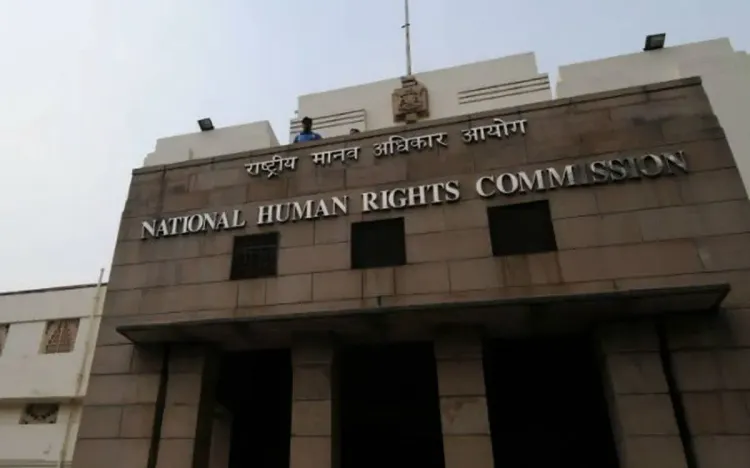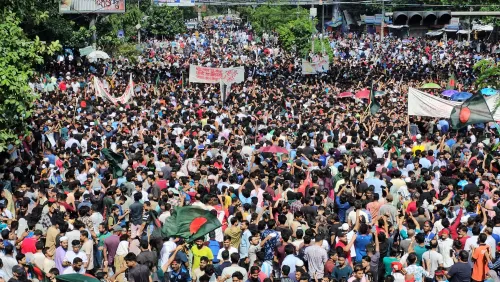Did NHRC Order Rs 10 Lakh Relief in Custodial Death Cases?

Synopsis
Key Takeaways
- NHRC recommends Rs 10 lakh compensation for families of custodial death victims.
- 156 new cases of judicial custody deaths were registered in March.
- Prison conditions are under scrutiny, especially for female inmates.
- Overcrowding and lack of amenities are critical issues in jails.
- NHRC actively seeks data to address women prisoners' welfare.
New Delhi, April 27 (NationPress) In light of the National Human Rights Commission's (NHRC) intensified scrutiny of prison conditions and its initiative to gather data on female inmates across all states, the commission has resolved two cases of deaths occurring during judicial custody by advising a total compensation of Rs 10 lakh, as per official records.
This financial compensation was proposed in March for the families of the victims in cases where public officials responsible for prison management either breached human rights or exhibited negligence in safeguarding them.
In March, the NHRC documented 156 new cases of deaths in judicial custody.
Judicial custody deaths account for nearly 20 percent (2,210 cases) of the 10,340 cases related to various issues that were awaiting resolution in the commission as of April 7, according to records from the Ministry of Home Affairs.
Additionally, in March, the NHRC recommended a financial compensation of Rs 1 lakh in a case related to malpractice in government hospitals and primary health centers.
In another instance, the commission proposed Rs 50,000 in relief for a case concerning public officials' failure to take lawful actions.
Last month, the commission also documented 12 cases of deaths occurring in police custody. As of April 7, there were 259 cases of alleged police misconduct pending with the NHRC, according to their data.
The majority of these cases pertain to law enforcement personnel abusing their authority, infringing on citizens' rights, and engaging in unlawful or unethical behavior, which resulted in the death of suspects or accused individuals following their arrest.
The NHRC has previously taken suo motu cognizance of various challenges faced by prisoners, including women and their children, and has requested reports from all states by the first week of May.
Concerns regarding overcrowding, inadequate basic amenities, and insufficient healthcare in jails were highlighted by the NHRC's Special Monitors and Rapporteurs after visiting different prison facilities, as stated by an official.
Other issues raised included the infringement of the rights to dignity and safety of female prisoners, rising violence against them resulting in mental distress, unsanitary conditions without sufficient toilets, sanitary napkins, clean drinking water, and poor-quality food leading to malnutrition, particularly among pregnant and lactating mothers.
The NHRC also acknowledged complaints regarding the lack of educational opportunities for children of female prisoners residing in jails with them, along with the non-execution of their welfare programs, including legal aid, vocational training, and rehabilitation.
The Commission has sent notices to the Chief Secretaries of all States and Union Territories requesting information on the number of female prisoners held in jails, the number of female prisoners whose infants are in jails with them due to their incarceration, and the number of female prisoners who are convicted or under trial.
To alleviate prison overcrowding, the NHRC has also sought data from states concerning the number of male and female undertrial prisoners who have been confined for over a year.









